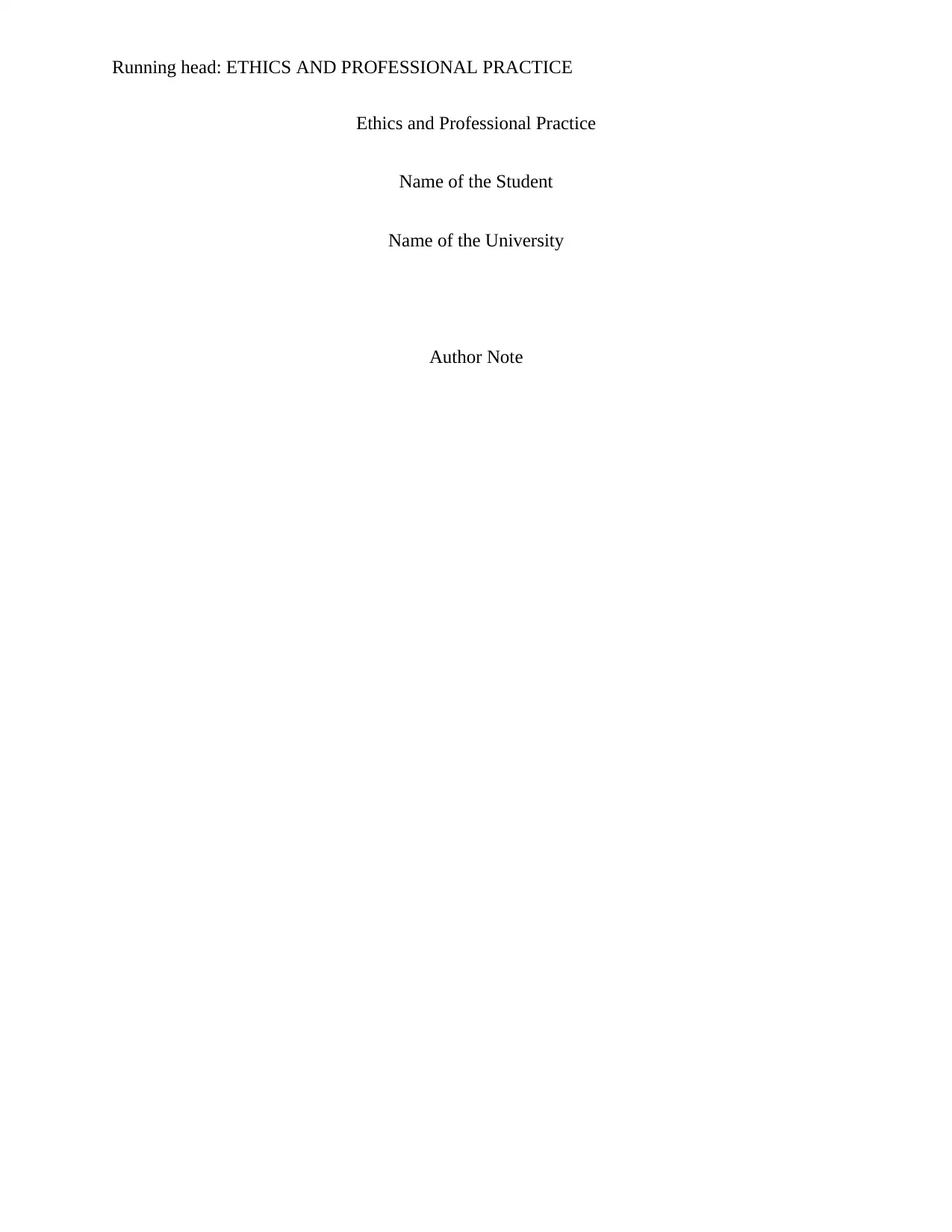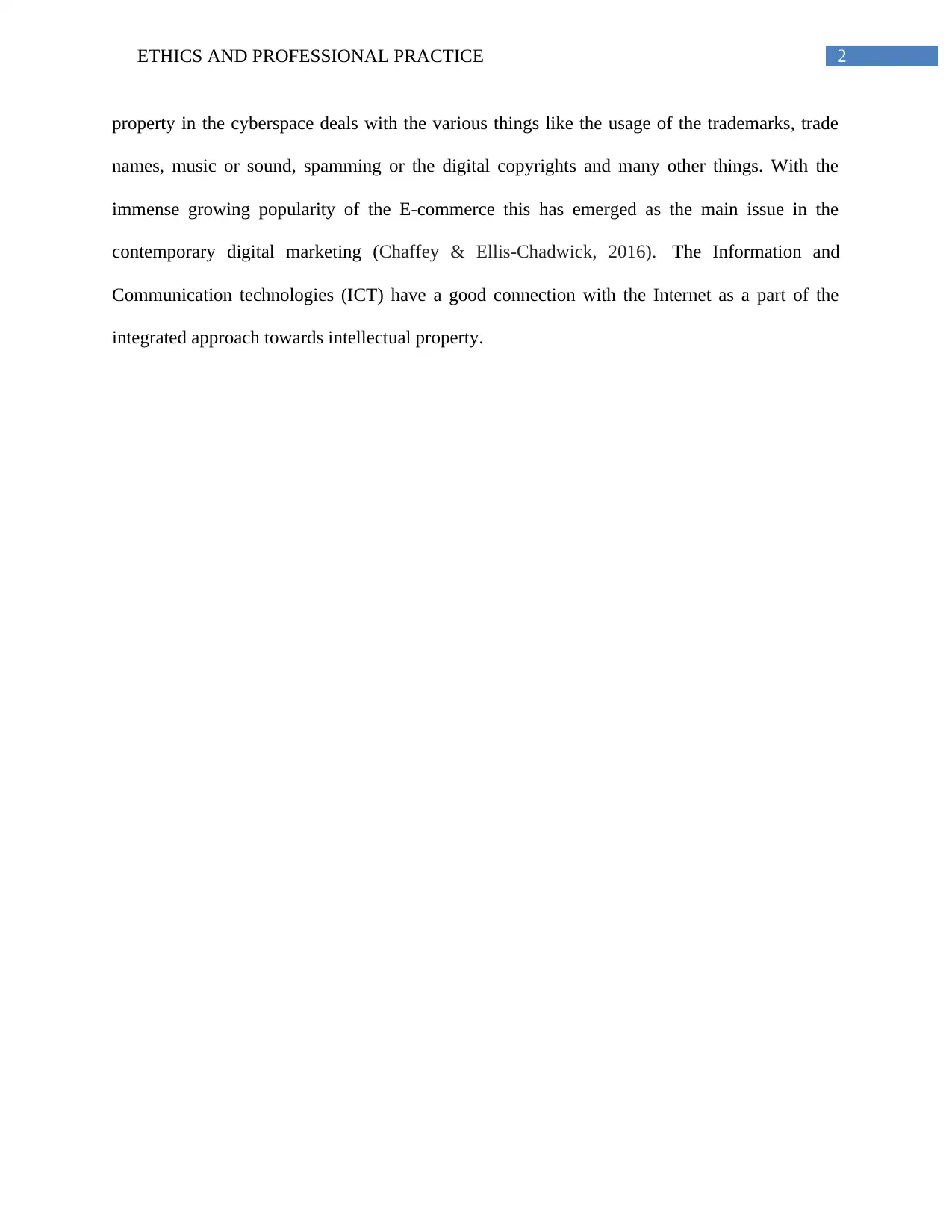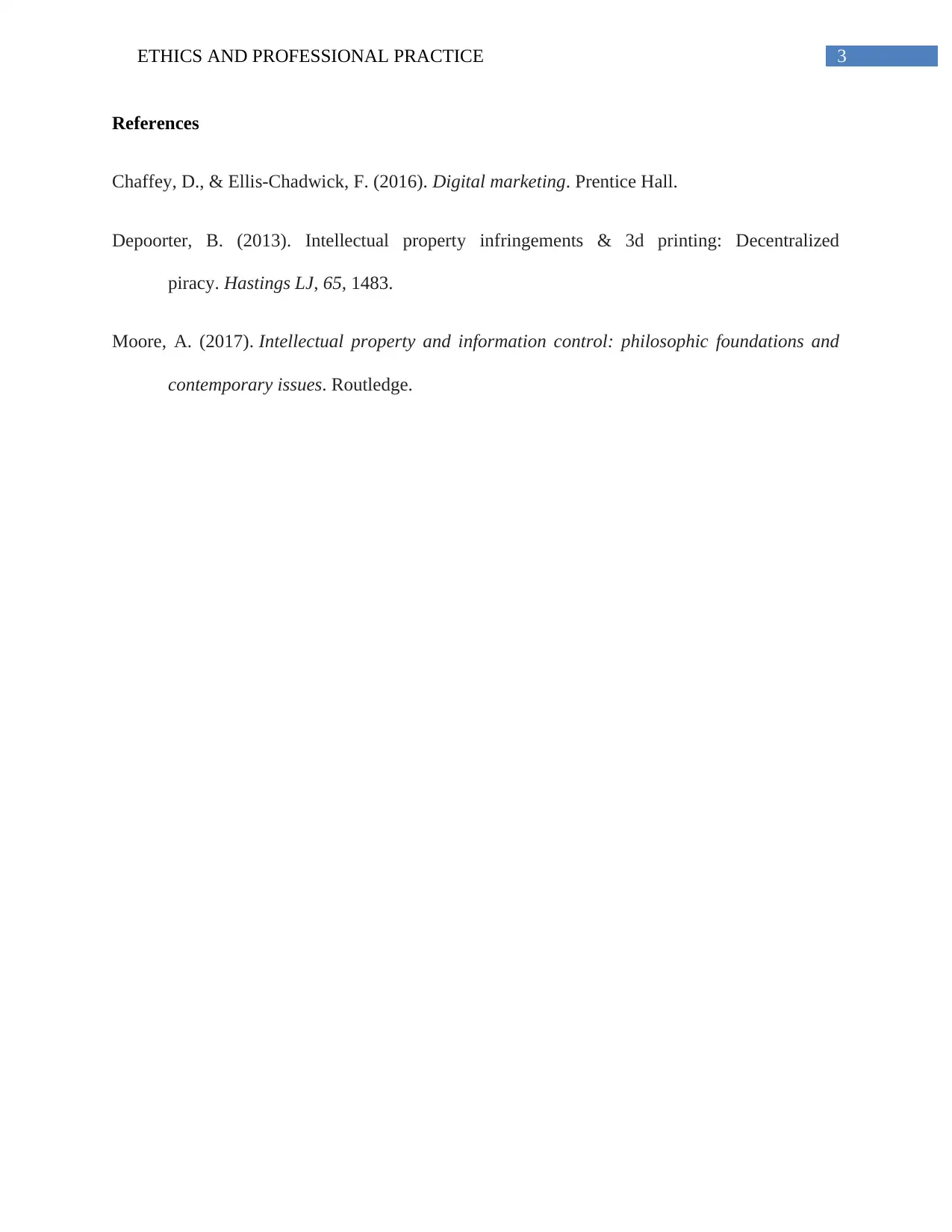Ethics and Professional Practice Report: Cyberspace and Ethics
VerifiedAdded on 2020/05/16
|4
|565
|119
Report
AI Summary
This report delves into the ethical considerations surrounding intellectual property within the context of cyberspace. It examines the challenges posed by digital environments, focusing on copyright, digital marketing, and e-commerce. The report explores the implications of the internet on artistic and literary creations, emphasizing the need for respect and integrity in the handling of intellectual property. It also discusses the legal frameworks and potential actions that can be taken to protect intellectual property rights. References to academic sources, such as Chaffey & Ellis-Chadwick (2016), Depoorter (2013), and Moore (2017), are provided to support the arguments presented. The report highlights the crucial role of Information and Communication Technologies (ICT) in relation to intellectual property in the modern digital landscape.
1 out of 4





![[object Object]](/_next/static/media/star-bottom.7253800d.svg)